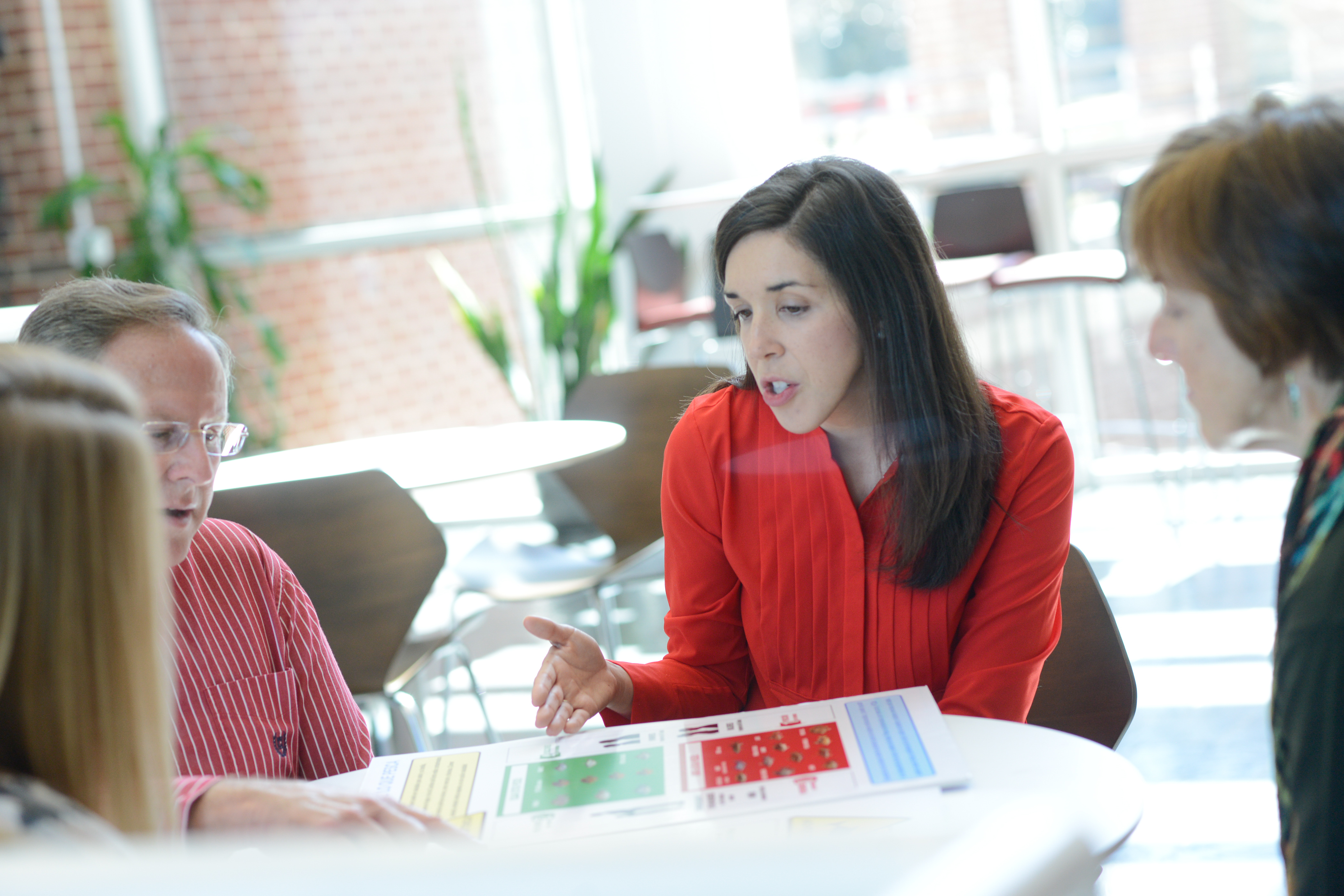Meet Catherine LePrevost, COEC Director

What is your general field of study and how did you get here?
Toxicology and science education. While working on my Master’s degree I was doing bench (in the lab) research, when I was given the chance to be a lab instructor and do some teaching. That’s when I realized how much I love to teach…and don’t love lab work.
How did you become interested in that field?
Once I realized how much I liked to teach, I was put in contact with Greg Cope and Julia Storm (both now Associate Directors of the COEC!), and that got me started on farmworker health and pesticide exposure. I realized there was a need for a better way to educate farmworkers on pesticide exposure, so I went back to school for the formal training and earned my PhD in science education.
If you had twenty seconds with a stranger on an elevator, how would you explain your research?
My work facilitates interactions and communication between community members and researchers, so that research questions are being driven by community needs, and research is creating practical information for people’s everyday lives.
How does your work apply to everyday life for that stranger on the elevator?
The topics we work on in the COEC are very broad, so everything is relevant to that stranger in one way or another–like our fish consumption project, whether you are a subsistence fisher or someone who buys fish at the grocery store, fish consumption advisories affect you. What’s happening in Flint reminds us that exposure to heavy metals can happen anywhere. We’re all interested in what we eat–although not always how it’s produced–and want to eat things that are healthy for us, making the COEC’s projects with farmworkers and outreach workers important. Basically, it’s hard to find a COEC project that isn’t broadly relevant to the everyday life of a North Carolinian in one way or another.
What is your greatest scientific achievement so far?
I’m really happy with my dissertation work, and how it has continued into our recent COEC work with community health and outreach workers. These are people who really understand community needs and gaps in research, but are so rarely involved in research or even asked for their opinions. I’m proud to be bringing their perspectives to the table.
What do you consider to be the biggest challenge in human and environmental health research?
What researchers want to study is not always the same as what a community’s needs are. We have to find a way to be responsive to what community members want, and balance that with the Center’s research objectives. What communities need is not always the “sexiest” for a grant proposal, but we must find a way to have everyone’s interests met.
If you could host a talk show, who would be your first guest?
Juan Felipe Herrera, he’s the son of farmworkers and the first Latino to be a US Poet Laureate. I heard him speak at the East Coast Migrant Stream Forum, and he was great. He moves so fluidly and effortlessly from English to Spanish, and his speech has a beautiful cadence.
Interview by:
Katy May is the Project Coordinator for CHHE’s Community Outreach and Engagement Core. She has a background in community-based management of environmental issues, with a focus on urban and coastal communities. When she’s not outreaching and engaging, Katy is a volleyball coach, beach-goer, and crazy dog mom.
- Categories: